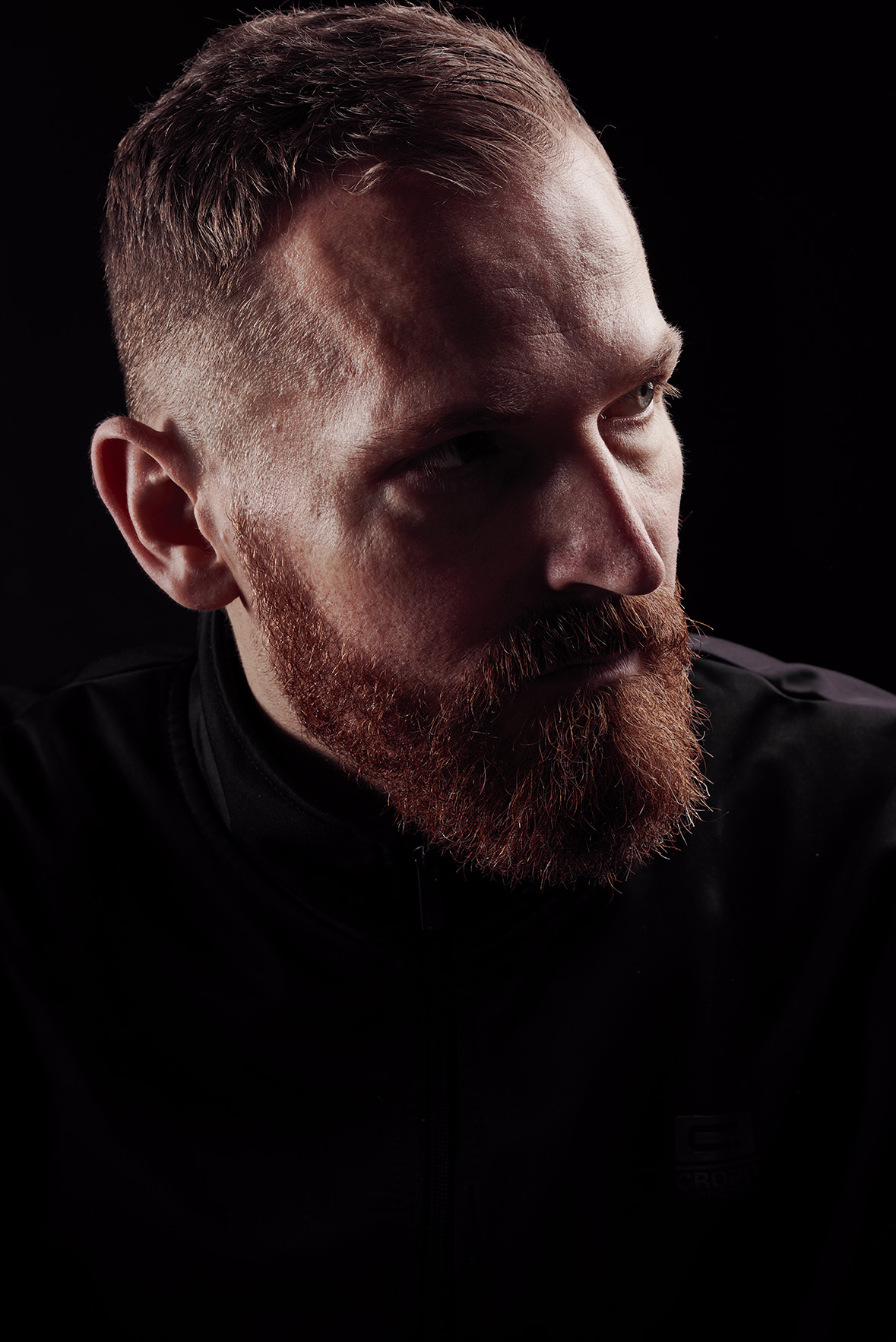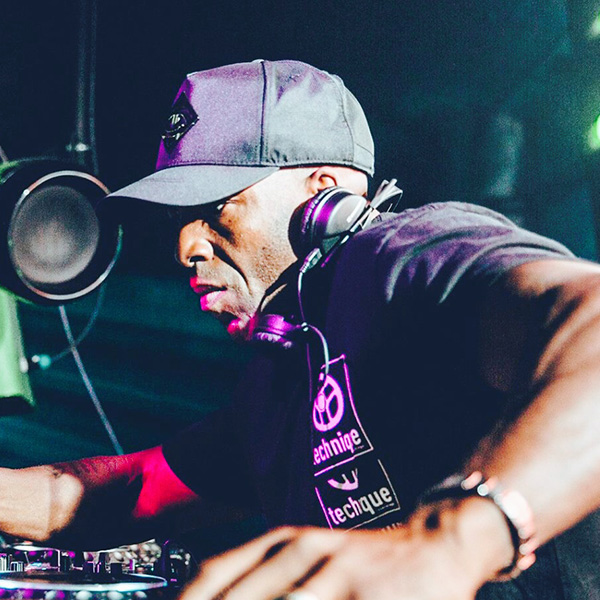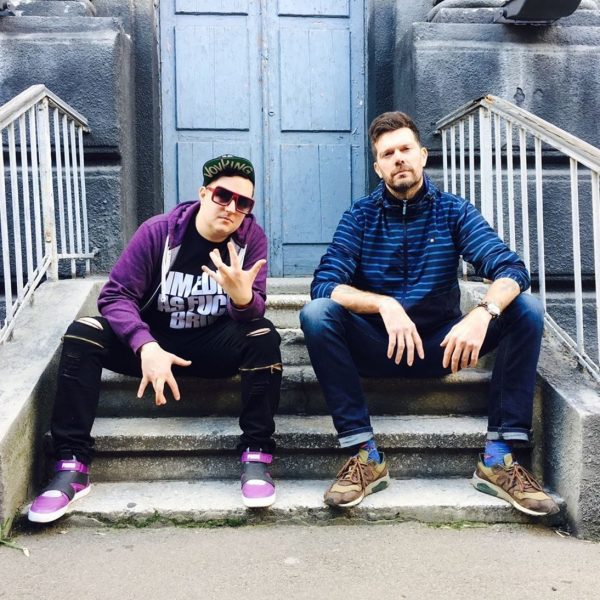Document One kick off 2016 in style on Technique with Run The Block / Small Steps. We caught up with Matt and Joe recently to find out how they made the tracks and get the lowdown on how they work and what they use in the studio.
At what age did you get into producing and how did you learn?
M) I was about 18, and Joe was the only person I knew with a set up. I’d begun going to nights with mates and decided electronic music was the direction I wanted to take.
J) I started producing when I was 14 and I’d been playing the piano for since I was 10. I got a midi keyboard and Fruity Loops and started producing hip hop beats for my friends who were MCs.
What producer or artist were you trying to sound like when you first started producing?
M) Pendulum, Drumsound & Bassline Smith, TC, DJ Marky, High Contrast, a bit of a mixed bag really! I knew I wanted it to be musical, but still retain the beefiness of DnB.
J) J Dilla, HiTek, DJ Shadow when I first started. A couple of years down the line when I was 16 I started getting mad into Warp Records so my music branched away from hip hop, and I started trying to imitate Boards of Canada and Aphex Twin.
What was your ‘eureka moment’ as producers?
Listening to DnB and realising there was a separate sub bass carrying the weight! Before this we had tried to get the ultra low end out of our bass sounds using EQs and it all sounded a little messy. When we started separating our basslines into layers our tunes started sounding a lot better.
How did you get your music noticed in the beginning?
By posting our tunes on MySpace and trying to get anyone we could to listen to it. Blogs caught on to our music, which really helped. Through that, Borgore found out about us and ended up signing an EP to his label Buygore. We stayed with Buygore for a long time, it was a fun time.
Talk us through your typical workflow from idea development to conception…
If we’re feeling inspired then we get the idea down as quickly as possible, quite often this will be something we’ve written on the piano or guitar. Often we’ll have a DJ before we step into the studio so to get inspiration. If an idea is fairly strong then we start structuring it and working hard on the drop, we step away from the keyboard and guitar and it becomes more like engineering. We get really focused on sound design and mix downs once something has structure.
What part of the production process do you find the most challenging?
The mixdown! It’s tricky trying to create something musically unique, as well as it standing its ground sonically with other artists in DnB. We can be obsessive over the mixdown process. We discuss new ideas and methods for this all the time, whether it’s EQ techniques, finding a new limiter or a little trick for kick and bass to work better together we’ve read somewhere.
How do you come up with melodies or chord progressions?
We literally jam it out a lot of the time, on keyboard and guitar. We both really enjoy the techy side of bass music and working in the studio, but we’re equally obsessed with harmony and melodic side things. When we’re creating something from scratch it’s important to us that it starts with something musically interesting, harmony and chord progression is usually at the core of our tracks. If it was all production we’d lose our head!
Out of the tracks you do start, how many get finished? How many get released?
At the end of last year, we counted 18 tunes that were near completion, that has whittled down to 3. We are creative people and we’re constantly trying out new ideas and experimenting. In terms of sound quality and fidelity, the process takes a long time and some tracks will fall into place quicker than others. Some tunes take weeks, some we sweat over for months.
Where is your studio set up and what does is consist of?
M) I like to be as mobile as possible, but at the hub of it all is a Macbook Pro. I’ve got various different keyboards, guitars, bass etc but due to my workflow and conditions I often lean more towards my Akai MPK25. Monitor wise I have a set of Yamaha HS80’s and smaller set of Mackies to switch between to test the difference. Apart from that, a strong Focusrite soundcard has been the beast supporting all this and I wouldn’t have it any other way.
J) At its heart is Ableton Live. I have Dynaudio BM6A’s, Yamaha MSP5’s and some KRK’s and my soundcard is Focusrite. I’ve got a few hardware synths, including a Korg MS20, Roland System 1 and a Virus TI. My outboard includes an St Audio stereo compressor, a DBX valve preamp and an Aphex Aural Exciter. I have some really nice controllers including a Maschine Studio, Softube Console 1 and an Arturia Keylab.
Do you use hardware or are you software only?
We’ve used a lot of hardware in the various studios we’ve worked in; we used to go to Metropolis a lot. Joe has some hardware but we are mostly in the box.
What are the best tools for beginners?
We started on Reason 3, which was so much fun and very inspirational. I would say either that or, if you want something a bit more flexible that you can perform on as well as produce, Ableton is the one!
What are your favourite plugins and what makes them so essential?
M) I guess NI Massive is a given, we’ve both spent years using it so feel pretty confident with it. On top of that, we love Fabfilter plugins and Camel Audio. They both are exceptional tools, getting you to the finish line quick and sound incredible.
J) I love Xfer Serum. I bought it soon after it was first released and I use it all the time. I also love Maschine, and I’m loving the Softube Console 1, they worked with SSL to model the SL 4000E console and it sounds great!
Which bit of kit would you love to have for your studio?
M) A set of K&H high-end monitors. I’ve heard nothing but great things. A great set of monitors will last a lifetime!
J) A set of Barefoot monitors and for the more achievable end of the spectrum, Ableton Push 2 looks very interesting.
Which DAW do you use and why do you use it?
Ableton Live. The workflow is amazing! It’s so fast to get an idea down. I remember trying it for the first time and literally being blown away, we used Cubase for the last time that day!
How do you go about compression?
M) If it’s in the box I tend to go for some of our favourites. Saying that I know if I’m working say on a vocal it will be best to use a different compressor as to our bassline. I personally like compressors to have a lot of colour but overkill can easily happen when you don’t know the characteristics to well of a specific sound.
J) It depends what I’m compressing, I compress drum hits hard and I use sidechain compression a lot on my basslines. I use Multiband compression a lot and I don’t compress if I don’t need to.
Any advice you can give us regarding mixdowns and mastering?
M) I’d like to say referencing will always help, but don’t let yourself get too bulked down on that as it’s important to know you will never be able to recreate something by another artist, and as well as that be creative! This will lead you in new directions and to a unique sound in your mixes.
What do you know now that you wish you had known when you started out?
M) Frequencies and how to balance a mix. When I listen to anything of ours from years ago all I hear are muddy frequencies overlapping making the whole thing sound not as exciting as it could have been.
What piece of advice would you give to producers still honing their craft?
M) Be original and read / watch as much info as possible to give you a greater understanding of the science you’re diving into.
J) Have fun!
What’s key to creating your own sound?
M) When I find out ill let you know! But seriously I think trial and error. We’ve been working on music as a duo for many years now and I only feel now we’re finding our sound.
J) Experimentation.
Whose productions do you love right now?
M) Calyx & Teebee, Break and Drumsound & Bassline Smith are all up there for me. Each are amazing and consistently hit the mark for me.
J) Break, DLR, Ivy Lab. Noisia are my absolute heroes though it must be said.
What track would you love to have the stems of for a remix?
M) Something by Michael Jackson. Doesn’t matter which song, they would all be great to work with.
J) Roads by Portishead. Dummy was the first album I owned and Portishead have been heroes of mine since I was a kid. I’d love to get my hands on some of their stems.
Tell us about your next single on Technique, Run The Block / Small Steps…
M) There are two sides. The A-side ‘Run The Block’ is a continuation of our jazz infused sound. The intro has an east coast Hip Hop vibe with an old school sounding bassline and rap verse. The B-side ‘Small Steps’ is darker and dirtier with much more emphasis on the sonics and sound design. We wanted to show people the darker side to our music, I think some thought we were going a bit soft.
Got any other releases / remixes in the pipeline you can tell us about?
We’re constantly working on new material, it’s a matter of the label and us agreeing on what comes next. At the moment, we’re focusing on blending our jazz with the more techy side of DnB so hopefully before the summer you’ll hear that!
Anything else you’d like to tell us about?
Just big up to everyone supporting our music at the moment. From Technique to Friction at BBC Radio 1 and all the DJs!
Run The Block / Small Steps is available on Beatport on January 22 and iTunes on February 5. Pre-order on iTunes now.



